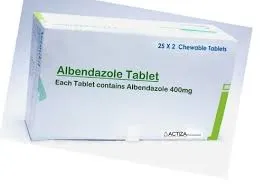- Afrikaans
- Albanian
- Amharic
- Arabic
- Armenian
- Azerbaijani
- Basque
- Belarusian
- Bengali
- Bosnian
- Bulgarian
- Catalan
- Cebuano
- Corsican
- Croatian
- Czech
- Danish
- Dutch
- English
- Esperanto
- Estonian
- Finnish
- French
- Frisian
- Galician
- Georgian
- German
- Greek
- Gujarati
- Haitian Creole
- hausa
- hawaiian
- Hebrew
- Hindi
- Miao
- Hungarian
- Icelandic
- igbo
- Indonesian
- irish
- Italian
- Japanese
- Javanese
- Kannada
- kazakh
- Khmer
- Rwandese
- Korean
- Kurdish
- Kyrgyz
- Lao
- Latin
- Latvian
- Lithuanian
- Luxembourgish
- Macedonian
- Malgashi
- Malay
- Malayalam
- Maltese
- Maori
- Marathi
- Mongolian
- Myanmar
- Nepali
- Norwegian
- Norwegian
- Occitan
- Pashto
- Persian
- Polish
- Portuguese
- Punjabi
- Romanian
- Russian
- Samoan
- Scottish Gaelic
- Serbian
- Sesotho
- Shona
- Sindhi
- Sinhala
- Slovak
- Slovenian
- Somali
- Spanish
- Sundanese
- Swahili
- Swedish
- Tagalog
- Tajik
- Tamil
- Tatar
- Telugu
- Thai
- Turkish
- Turkmen
- Ukrainian
- Urdu
- Uighur
- Uzbek
- Vietnamese
- Welsh
- Bantu
- Yiddish
- Yoruba
- Zulu
Nov . 11, 2024 20:38 Back to list
what kills lungworm in dogs
What Kills Lungworm in Dogs? Understanding the Dangers and Treatments
Lungworm infection in dogs, primarily caused by the parasitic worm *Angiostrongylus vasorum*, has become a growing concern for pet owners worldwide. This parasite can lead to serious respiratory issues and even death if left untreated. In this article, we will explore what lungworm is, how it affects dogs, its symptoms, and importantly, what can be done to kill lungworm.
What is Lungworm?
Lungworm is a type of nematode that typically infects dogs through the ingestion of raw or undercooked snails, slugs, or contaminated water. Once inside the dog’s body, the worms migrate to the lungs, where they can grow and reproduce. The adult worms reside in the pulmonary arteries and the right side of the heart, and their presence can result in a slew of health problems.
Symptoms of Lungworm Infection
The signs of lungworm infection may vary widely amongst dogs and can sometimes be mistaken for other respiratory conditions. Common symptoms include
1. Coughing A persistent cough, often worsening over time. 2. Breathing Difficulties Rapid or labored breathing as the lungs become compromised. 3. Lethargy A noticeable decrease in energy levels and reluctance to engage in physical activities. 4. Weight Loss Difficulty gaining weight or noticeable weight loss despite a good appetite. 5. Bleeding Disorders Unexplained bleeding due to the lungworm's impact on the blood's ability to clot, which can lead to serious complications.
Diagnosing Lungworm
Veterinarians can diagnose lungworm through a combination of clinical signs, history, and specific diagnostic tests, such as fecal examinations or blood tests. These tests help identify the presence of larvae or antibodies against the lungworm.
what kills lungworm in dogs

Treatment Options
The effective treatment of lungworm consists of several key components. Anti-parasitic medications are used to kill the lungworm directly. The most commonly prescribed medications include
1. Fenbendazole This is often the first choice for treating lung worm in dogs. It works by interfering with the worm’s metabolism and killing it. 2. Milbemycin Oxime This medication paralyzes and kills the worms effectively. It has proven successful in eliminating both adult worms and larvae from the dog's system. 3. Ivermectin While this is commonly used to treat a wide range of parasites, it is essential to use it cautiously and under veterinary guidance since some breeds, such as Collies, may experience adverse effects.
In addition to these medications, symptomatic treatment may be necessary for dogs with severe symptoms. This can include corticosteroids to reduce inflammation in the lungs, antibiotics for any secondary infections, and supportive care to maintain hydration and nutritional balance.
Preventing Lungworm Infection
Prevention is crucial when it comes to lungworm. Pet owners can take several proactive measures
1. Regular Vet Check-ups Routine veterinary check-ups can help catch infections early. 2. Preventing Snail Exposure Keep dogs away from areas known to have high populations of snails and slugs. This is particularly important in wet and humid environments where these creatures thrive. 3. Hygiene Keep dog food and bowls clean and avoid feeding raw or undercooked animals that may harbor lungworm. 4. Regular Parasitic Treatments Regularly administering deworming treatments, especially if your dog is at higher risk due to lifestyle or habitat, can significantly reduce the chances of lungworm infection.
Conclusion
Lungworm in dogs can pose serious health risks if not treated promptly and effectively. Awareness of the symptoms and preventive measures can significantly mitigate the risks associated with this parasite. If you suspect your dog may have lungworm, consult your veterinarian immediately for diagnosis and appropriate treatment. Remember, early intervention is key to ensuring your furry friend remains healthy and active. By understanding what kills lungworm and how to prevent it, you take essential steps towards protecting your beloved pet.
-
Guide to Oxytetracycline Injection
NewsMar.27,2025
-
Guide to Colistin Sulphate
NewsMar.27,2025
-
Gentamicin Sulfate: Uses, Price, And Key Information
NewsMar.27,2025
-
Enrofloxacin Injection: Uses, Price, And Supplier Information
NewsMar.27,2025
-
Dexamethasone Sodium Phosphate Injection: Uses, Price, And Key Information
NewsMar.27,2025
-
Albendazole Tablet: Uses, Dosage, Cost, And Key Information
NewsMar.27,2025













